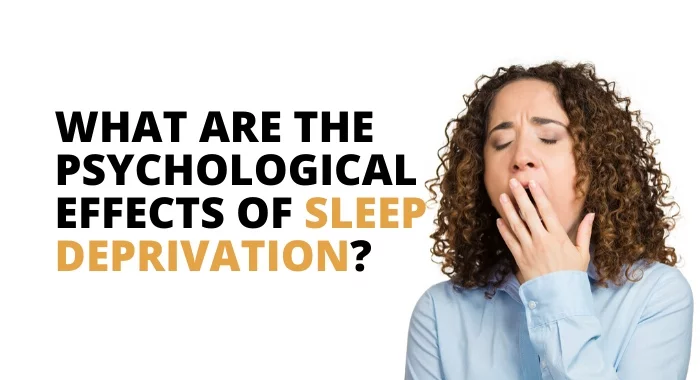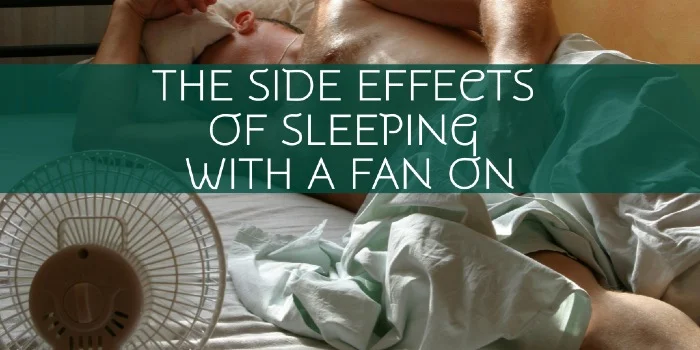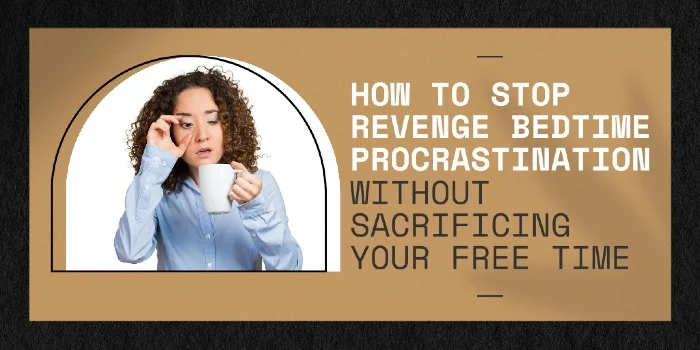Humans need sleep to function. It’s how we recover, process information, and regain energy to make it through the day.
To keep us at our best, it’s recommended that we have at least 8 hours of sleep a night. If you go without it, your body is sleep-deprived and will lack the energy it needs.
The longer you go without sleep, the worse you’ll feel. This isn’t just physical either, there are also many psychological effects of sleep deprivation that you need to know about. Luckily, we’re about to cover them all in this guide.
What is sleep deprivation?
Sleep deprivation is a lack of sleep. This can be from getting much less than your 8 hours a night or waking up multiple times a night which distributing your sleep cycle.
Think of sleep deprivation like taking your phone off charge when it’s only at 35% and then expecting it to make it through the day as normal. It just hasn’t got the functionality to do it.
Sleep deprivation causes a range of symptoms, including:
- Excessive tiredness or lack of energy;
- Irritability and mood swings;
- Cold or flu-like symptoms from a lower immune system;
- Anxiety;
- Lack of concentration.
The longer you go without sleep, the worst the psychological effects of sleep deprivation will become. What’s more, you’ll be more at risk for potential health conditions, such as decreased fertility, a lower immune system, obesity, diabetes, and heart disease.
What causes sleep deprivation?

In a nutshell, sleep deprivation can be caused by anything that’s interfering with your sleep. In a world full of distractions and deadlines, it’s no wonder that 35% of adults don’t get enough sleep.
Therefore, the causes of sleep deprivation can be anything such as:
- Lifestyle changes, such as a newborn, breakup, or moving homes;
- Stress;
- Medical conditions such as chronic pain or pregnancy;
- Underlining sleep disorders, such as insomnia;
- Shift work, like night shifts;
- Having caffeine too close to bedtime;
- Using screens during the night;
- Overthinking or worrying at night.
The causes of sleep deprivation are different depending on your circumstances, so in order to get over your sleep deprivation, you need to think about what is keeping you up at night.
What does lack of sleep do to your brain?
A lack of sleep plays havoc with many brain functions, including waste disposal.
Waste disposal is a process where the brain disposes of misformed or unneeded proteins through the glymphatic system. This usually happens when we are sleeping, so sleep deprivation means that you have more ‘waste’ proteins and materials in your head. The longer you go without sleep, the more dangerous and toxic these proteins can be, causing disorders like Alzheimer’s disease.
The longer you go without sleep, the ‘dirtier’ your brain gets.
Research has shown that amyloid-beta levels, the protein that causes Alzheimer’s disease, increased by 5% after one night of sleep deprivation. In addition, the higher the amyloid-beta levels, the worse moods people suffered the next day.
Just a single night of sleep deprivation increases the amount of Alzheimer’s protein in your brain. For a healthy brain and body, you need to sleep.
What are the psychological effects of sleep deprivation

The psychological effects of sleep deprivation come in many different forms, including:
- Anxiety;
- Being in a low or irritable mood;
- Drastic mood swings;
- Erratic behaviour;
- Forgetfulness;
- Psychotic episodes;
- Easily distracted or unable to concentrate;
- Not being able to think clearly;
- Hallucinations;
- Symptoms of psychosis;
- Symptoms similar to those of attention deficit hyperactivity disorder (ADHD);
- Trouble sustaining attention;
- Problems processing information.
Not having enough sleep means that your body doesn’t have the energy or resources to function as normal. Therefore most of the psychological effects of sleep deprivation are caused by your brain not being able to physically perform as normal.
For example, sleep deprivation has been found to make it difficult for brain cells to communicate effectively. This means that you can suffer from temporary mental lapses that cause forgetfulness and being unable to process information in the same way.
Let’s say you’re out walking and reach a road which has a red man sign in the crossing. If you’re sleep-deprived, you’ll see the sign, but not realise that that means you need to stop. The signs are there, but the brain just can’t connect the dots in the same way.
The CDC has stated that 24 hours without sleep is comparable to having a blood alcohol content (BAC) of 0.10%. This is over the legal driving limit.
What is considered chronic sleep deprivation?
Chronic sleep deprivation is a lack of sleep over an extended period of time, usually 3 months or more.
Most cases of sleep deprivation are temporary. They might be caused by lifestyle changes or stress, such as moving house. But once the move is sorted, they will be able to catch up on the sleep missed and start functioning as normal.
Those suffering from chronic sleep deprivation may have more serious underlining causes. Over time, their risk of developing further health risks increases.
Does sleep deprivation have permanent effects?
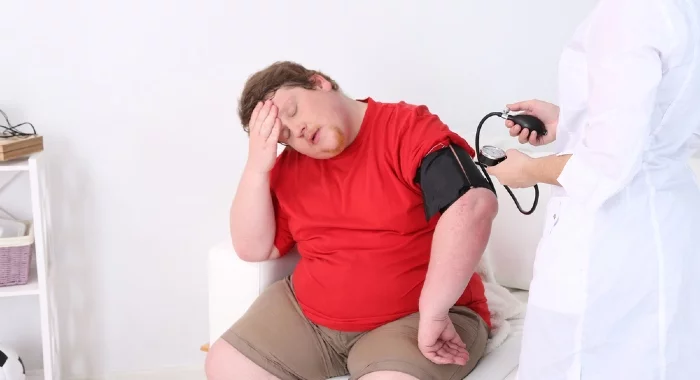
Yes, some psychological effects of sleep deprivation can be permanent as it increases your risk of developing other health conditions and diseases, as well as the risk of early death.
Sleep deprivation increases your risk of:
- Brain damage as sleep deprivation can over-stimulate parts of the brain which can cause permanent brain damage.
- Immune System Deficiency as a lack of sleep decreases your antibody response making you more vulnerable to infections and diseases.
- Infertility as a lack of sleep is known to lower libido and can make both men and women less able to conceive.
- Type 2 Diabetes as a lack of sleep disrupts the body from processing glucose correctly and produce insulin.
- Weight gain and obesity, which is also linked to disrupted glucose processing and changes to the body’s metabolism. It can also be attributed to an increased desire for sugary snacks during the day while trying to regain energy.
You can discover other health risks a lack of sleep may cause here.
How much sleep deprivation is dangerous?
Even the smallest amount of sleep deprivation can be dangerous, as a lack of concentration could cause a fatal accident.
The longer you go without sleep, the worse the effect this will have on your body.
- At 24 hours without sleep, you’ll start to see some of the common symptoms of sleep deprivation, including mood changes, lack of concentration, and forgetfulness.
- At 36 hours without sleep, you’ll have high levels of inflammatory markers in your blood, increasing your risk of high blood pressure and heart disease.
- At 48 hours without sleep, you’ll start suffering from microsleeps, where your body will fall asleep involuntary for 1-30 seconds.
- At 72 hours, you’ll likely to be hallucinating and be in a severely depressed or paranoid state.
The longest anyone has been without sleep is 11 days.
Can sleep deprivation cause personality changes?
Yes, one of the psychological effects of sleep deprivation is to cause personality changes and mood swings.
Lack of sleep can make people feel irritated, grumpy and increase mood swings, making them less emotionally stable.
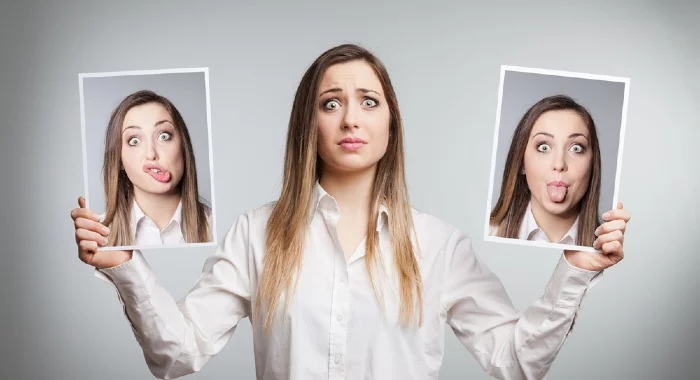
Those that are sleep deprived are much more likely to lash out, start arguments, or make rash emotional decisions that they wouldn’t do normally. Hell, I’ve nearly cried over not having any of my favourite snacks in the house before when I’ve been overly tired.
These mood swings will often happen without logic or reason.
Remember the last time you saw a child throw a tantrum. Most of the time, this is caused by sleep deprivation from missing a nap, triggering a personality change and emotional outburst. It’s not always ‘bad parenting’, they just need some sleep.
Does sleep deprivation cause anxiety?
Yes, anxiety is one of the psychological effects of sleep deprivation.
This may be because a lack of sleep can activate certain areas of the brain that contribute to excessive worrying and emotional processing, mimicking the neural activity that happens during anxiety disorders.
If you’re struggling with sleep anxiety, you may want to try these sleep relaxation exercises or invest in weighted blankets to help you get a better night’s sleep.
What are 5 emotional effects of sleep deprivation?
The psychological effects of sleep deprivation interfere with how people feel and process emotions.
Although this can take many forms, these are the 5 biggest emotional effects of sleep deprivation.
1. Sleep deprivation makes you more emotionally reactive
Sleep deprivation alters the connections between your prefrontal cortex and the brain’s reward- and emotion-processing centers. In simple terms, this means that you become hypersensitive to stimuli and have greater emotional responses.
This means that you’re much more likely to react strongly to everyday situations. It’s what causes mood swings and irrational behaviour, like starting fights, shouting, or crying at certain events. It’s just negative emotions that are affected either, it’s every single emotion.
It’s as if someone switched all your emotions up to a higher intensity and rapidly switched between them all. Every little thing can stimulate an intense and irrational emotional response.
2. You can’t handle social situations

The same reason for having intense emotional reactions means that you’re less able to deal with social situations. This is because you’ve got too many stimuli that need emotional responses and in a state of intense emotional reactiveness, it’s exhausting to keep on top of.
In addition, sleep also impacts your emotional regulation. This is basically the logic part of your brain that’s there to put the brakes on your impulsive reactions and check if you really want to behave that way.
Sleep deprivation stops this working at well, which means you’re more likely to have impulsive and potentially negative responses. This can cause strains on relationships or potentially disastrous situations at work.
3. You have a more negative outlook
One of the annoying psychological effects of sleep deprivation is repetitive negative thinking, which is where your mind focuses on the negative. It’s like sitting under a permanent raincloud.
These relative thoughts are intrusive and difficult to control, making it hard to snap out of these moods. It’s also linked to developing anxiety or depression episodes.
4. You worry more about the future
Not only does sleep deprivation cause more negative thoughts, it also makes you worry more about the future. It’s not a fun experience to go through.
If you are prone to worry about situations, a lack of sleep increased anticipatory anxiety, which makes you worry more about upcoming events or the future. Even if you don’t normally worry, a study on sleep deprivation and anxiety showed that lack of sleep increases anxiety levels about the future.
5. You feel less connected to others
Sleep deprivation can cause strain on relationships by having more emotional mood swings and impulsive reactions. But, Scientists at UC Berkeley found that lack of sleep also diminishes gratitude for romantic partners.
In addition, sleep deprivation also makes it harder to feel empathy. This makes it more difficult to connect and understand another person’s feelings, making people feel disconnected from others.
How do you fix sleep deprivation?
The only way to fix sleep deprivation is by trying to get some sleep. To increase your chances of sleeping through the nights, we’ve put together a guide on how to overcome sleep deprivation.
Once you’ve started getting a more natural amount of hours, you can then start to overcome the psychological effects of sleep deprivation you may be suffering from.
If you’re still struggling with sleepless nights, arrange an appointment with your GP get further help and advice.
